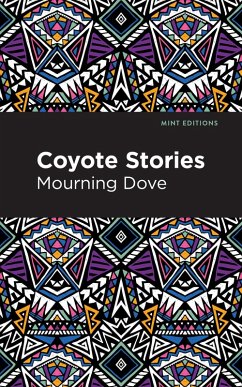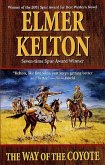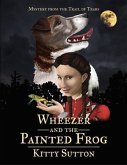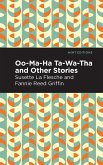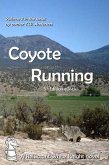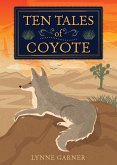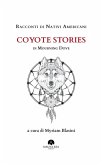"We who lived the days of tribal life before our destruction began remember with gratefulness our storytellers and the delight and joy and richness which they imparted to our lives. We never tired of their tales, though told countless times. They will, forsooth, never grow old, for they have within them the essence of things that cannot grow old. These legends are of America, as are its mountains, rivers, and forests, and as are its people. They belong!"
In the time of the Animal People (Chip-chap-tiqulk), follow the adventures of Coyote (Sin-ka-lip') the most important Animal Person that ever was. Put to work by the Spirit Chief, Coyote-despite his love for imitation and trickery-helps to make the world a good place to live for Animal People and New People alike while occasionally amusing himself with mischief.
Containing over two dozen tales from, "The Spirit Chief Names the Animal People," to "Coyote Imitates Bear and Kingfisher," Coyote Stories is Mourning Dove's collections of legends recounting the history of the world in it's youth.
Professionally typeset with a beautifully designed cover, this edition of Coyote Stories is a classic of Native and Indigenous literature reimagined for the modern reader.
Since our inception in 2020, Mint Editions has kept sustainability and innovation at the forefront of our mission. Each and every Mint Edition title gets a fresh, professionally typeset manuscript and a dazzling new cover, all while maintaining the integrity of the original book.
With thousands of titles in our collection, we aim to spotlight diverse public domain works to help them find modern audiences. Mint Editions celebrates a breadth of literary works, curated from both canonical and overlooked classics from writers around the globe.
In the time of the Animal People (Chip-chap-tiqulk), follow the adventures of Coyote (Sin-ka-lip') the most important Animal Person that ever was. Put to work by the Spirit Chief, Coyote-despite his love for imitation and trickery-helps to make the world a good place to live for Animal People and New People alike while occasionally amusing himself with mischief.
Containing over two dozen tales from, "The Spirit Chief Names the Animal People," to "Coyote Imitates Bear and Kingfisher," Coyote Stories is Mourning Dove's collections of legends recounting the history of the world in it's youth.
Professionally typeset with a beautifully designed cover, this edition of Coyote Stories is a classic of Native and Indigenous literature reimagined for the modern reader.
Since our inception in 2020, Mint Editions has kept sustainability and innovation at the forefront of our mission. Each and every Mint Edition title gets a fresh, professionally typeset manuscript and a dazzling new cover, all while maintaining the integrity of the original book.
With thousands of titles in our collection, we aim to spotlight diverse public domain works to help them find modern audiences. Mint Editions celebrates a breadth of literary works, curated from both canonical and overlooked classics from writers around the globe.
Dieser Download kann aus rechtlichen Gründen nur mit Rechnungsadresse in A, D ausgeliefert werden.

